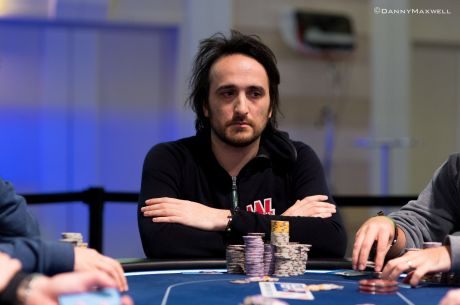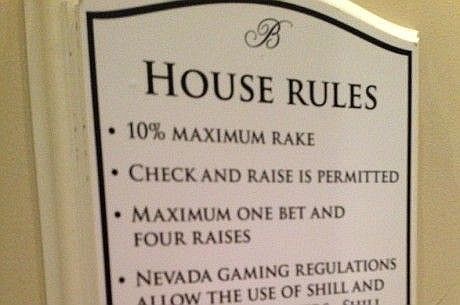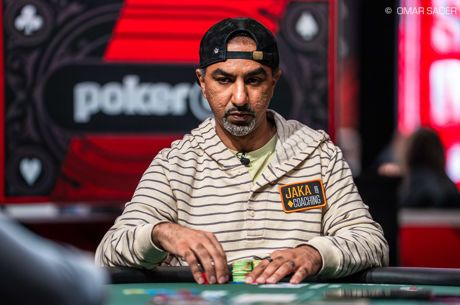Positives to Playing a Short Stack in Tournaments

A couple of weeks ago I shared some tips for how to work a big stack successfully in tournament poker, in particular focusing on beginning players who might not have a lot of experience sitting behind big stacks in tourneys.
While having a larger stack than all of your opponents can be good fun and dramatically change the way you play, it��s not always going to be the case that you��ll find yourself in such a fortunate position. Many times throughout a tournament �� whether it��s from losing a big hand or just being card dead for an extended period of time �� you��ll find yourself stuck behind a short stack.
Being short-stacked is clearly not ideal, but don��t fret! Just because you��re short on chips doesn��t mean you should look at the situation in an entirely negative light. In fact, there are certain positives to be found when it comes to having to play a short stack. Here we will examine some of those positives that will help you add more chips to your arsenal and keep you alive in a tournament.
Limited Options
Having a short stack �� by which we generally mean less than 15 big blinds �� reduces the amount of options you have. Since you��re not deep-stacked, you won��t be seeing a lot of flops or trying to outplay opponents postflop.
Such reduced options actually can be a bit of a relief if there are strong, aggressive players at your table who are difficult to play against. Rather, your options are narrowed down to picking spots before the flop, seeing flops for free in the blinds, and moving all in to take pots down.
The ��danger zone�� is generally considered to be when you have 10 big blinds left or less, so when your stack dwindles to this point, your moves become more black and white. This is the time in the tournament where you search for a premium hand and/or a suitable spot in position to open-raise all in against the blinds. Timing is key when making this all-in move, which leads me to my next point.
Waiting For Your Moment Increases Your Focus
You may have spent time browsing the net on your iPad or jamming to music early on in the tournament, but when you��re down to a short stack your focus on the tournament should be heightened. That��s because with each hand it feels like everything you��ve risked is constantly on the line.
Having such increased focus is a good thing. This is a terrific mentality to have, as you will be searching for any possible piece of information that will help you stay alive longer in the tournament and/or double up. In fact, chances are your focus will be sharper than that of some of your opponents who aren��t themselves close to or in the ��danger zone.��
As a short stack, you��ll find yourself at times making moves on players who look disinterested in their hands. You��ll be able to pick up on players who exhibit exploitable live tells that indicate they��re ready to fold to your all-in raise.
You Can Put Pressure on Medium Stacks
It is also important to realize that just because you have a short stack does not mean that you��re not a threat to other players. Part of your increased focus will involve weighing the stack sizes of other players at the table in comparison to your own. You won��t be doing this out of jealousy because other players have more chips than you do, but rather because you are eyeing which of your opponents have stacks that can still be significantly damaged should you double-up through them.
Let��s say for example your sitting on a stack of 10 big blinds and you are in the big blind. A player opens from the cutoff seat with a raise and you notice he has a stack of about 25 big blinds. You look down at something along the lines of 10?8?. Simply calling the raise is never an option here �� you��d be leaving yourself too few chips to maneuver afterwards. If you sense any inkling of weakness from your opponent, shoving all in may be the proper option.
An all-in bet can truly turn the tables on your medium-stacked opponents and put the pressure back on them. Why is that? Say in this case your opponent opened with a marginal hand from late position �� a not unlikely possibility. Suddenly you are putting him to a decision that would involve possibly calling off almost half of his stack. He��d have to have a hand near the top of his range here to make such a call comfortably, because calling your all-in bet and losing the hand would essentially mean the two of you would be trading places, chip-wise, and he��d become the short stack. That��s a sudden change of fortune that no player wants to endure.
Attacking a medium-stacked player can truly showcase the power that a short stack can hold. Winning enough of these pots and picking fortunate enough spots can even boost you to back up into the realm of being medium-stacked without ever having to go to a showdown.
Get all the latest PokerNews updates on your social media outlets. Follow us on Twitter and find us on both Facebook and Google+!








